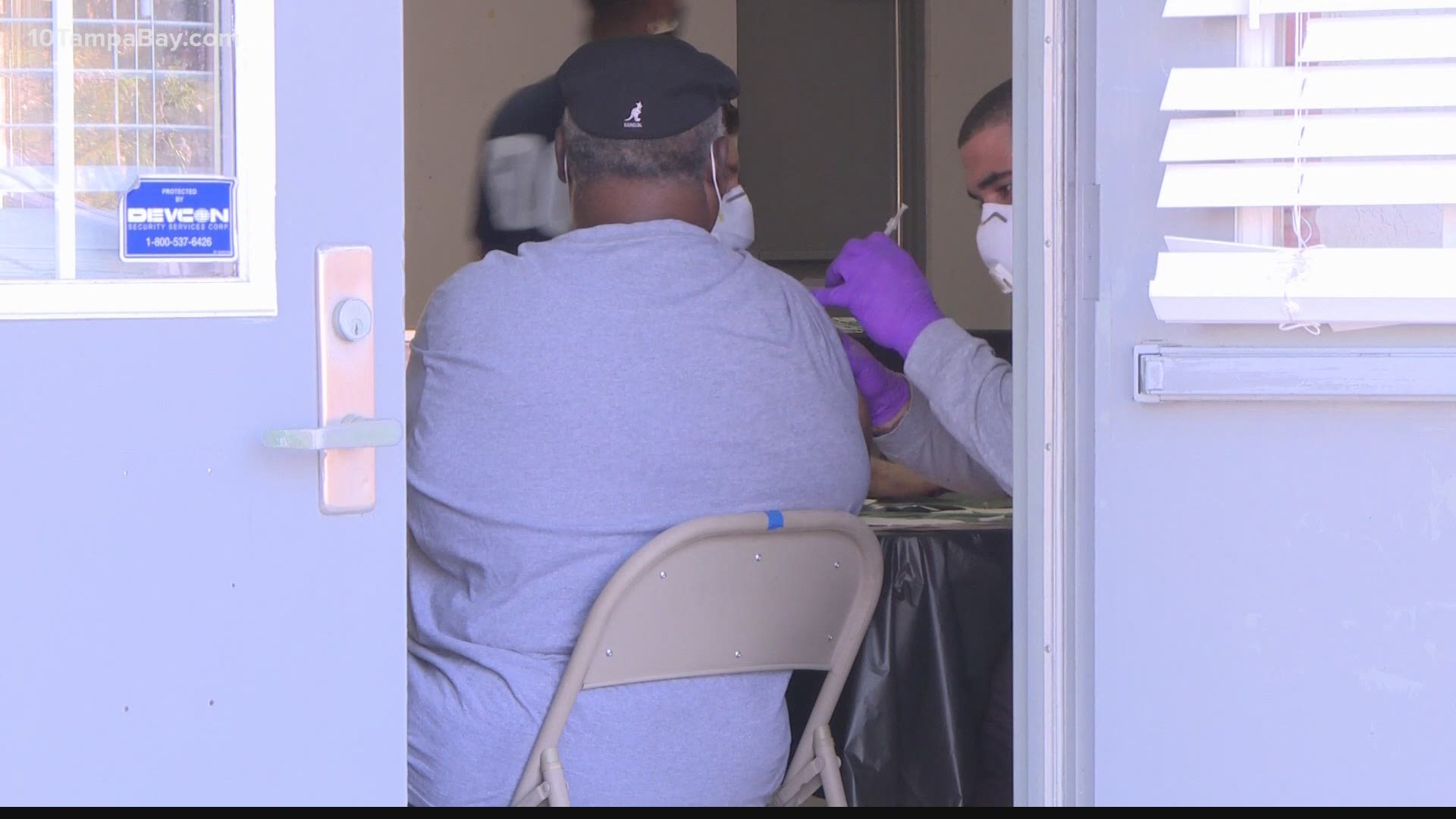New data from the Florida Department of Health and the Kaiser Family Foundation shows African Americans and Hispanics in the Tampa Bay area and across the state are receiving vaccines at rates much lower than other groups.
"Florida ranked 30th out of 34 states for vaccination equity,” said Dr. Aubrey Jewett, political science professor at the University of Central Florida. "About 6 percent of vaccines have gone to Black Florida residents. They make up about 15 percent of Florida's population...so there's about a 10 percent gap."
When it comes to the two major counties in the Tampa Bay area, in some cases, the numbers are even more alarming. According to data published by the Florida Department of Health, in Hillsborough County, seven percent of all vaccines have gone to those who identify as Black. That number is 10 percent for Hispanics.
In Pinellas, it gets worse: Four percent of all vaccines have gone to those who identify as Black, and just two percent to Hispanics.
Dr. Kevin Sneed, dean of the University of South Florida’s Taneja College of Pharmacy, says the numbers are concerning but adds the data might not give a complete picture.
“We don't know potentially how many African Americans are residing in the unknown category,” he said. “If it's a very small number, then you know we have a big problem across the entire state. But if it's a fairly large number…we have better numbers for African Americans…”
Dr. Sneed says, even if African Americans and Hispanics make up a large portion of vaccinated patients who have chosen not to identify their race, there are still gaps in access among minority communities.
Dr. Jewett says Black and Hispanic populations across the state skew younger, so some were ineligible for the 65 plus appointments, despite these populations being at higher risk for contracting COVID-19 across the age spectrum. He also said we must consider making vaccine centers more accessible to minority communities, particularly those that are economically challenged.
“Poor Black residents may have a much harder time getting access to those vaccines if we rely on a group like Publix to deliver it. And to some degree, you might see the same thing with some of these pop-up sites,” said Jewett. “If you look at where Publix is located in the state and particularly in some counties, frequently, they are located fairly far away from rural areas and from poor Black areas."
Jewett cites vaccine hesitancy rooted in historic mistrust as another reason why numbers could be low, particularly in the African American community.
“The United States does have a history of racism when it comes to vaccines…probably the most famous was the Tuskegee experiment on syphilis where they allowed black men to basically suffer from syphilis and not be treated and die from it,” said Jewett.
"If you have large swaths of the population, for instance, Black and Hispanic, that have been wanting to get the vaccine, and can't get it, or a little scared to get it for historical reasons, then that is sort of a hole in our strategy for effective public health."
Governor Ron DeSantis has increased efforts in minority communities by encouraging the state to partner with churches for vaccine distribution. However, he has also faced sharp criticism after several wealthy white communities received exclusive, prioritized access to vaccines.
- CVS offering COVID vaccine to Florida teachers under 50
- $600K in COVID-19 precautions: Here's what to expect at this year's Florida Strawberry Festival
- House passes sweeping police reform bill named after George Floyd
- Senate debate on COVID bill, $1,400 checks may start today
- SpaceX's Starship sticks its landing but blows up
- Where to get the COVID-19 vaccine in Florida
►Breaking news and weather alerts: Get the free 10 Tampa Bay app
►Stay In the Know! Sign up now for the Brightside Blend Newsletter

